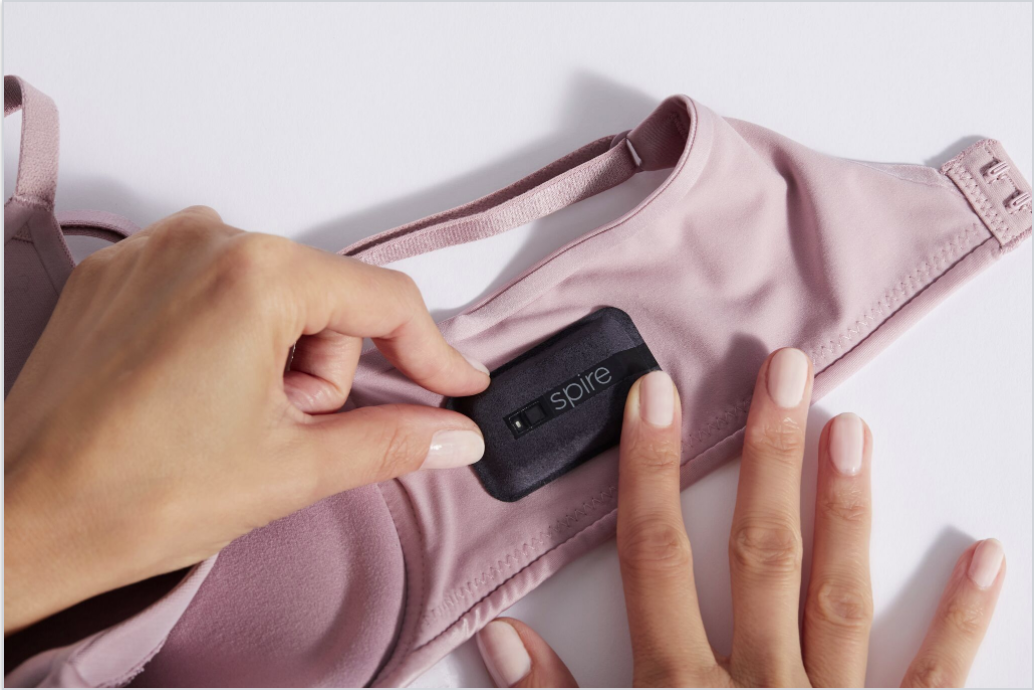Spire develops a health-tracking wearable that never needs charging


Most wearables companies would consider having their product sit unattended in a drawer for a couple of years as a failure. But for new wearable health trackers from Spire, that might be a sign of success.
Featured
Like many other wearables, the company's first nameksake clip-on monitor measured activity. While significantly larger than the tiny electronics core inside the Fitbit Flex, Spire could go beyond measuring activity as simple accelerometer-based products do because the product continually measures breathing and thus provides a window into reactions from stress, for example.
So, while much of the core activity of movement-tracking risks being subsumed into more conspicuous and power-hungry smartwatches -- a category into which Fitbit is making a major push via acquisition and products -- Spire has dramatically shrunk the power requirements of its core breath-detection sensor technology. The result has been the Spire Health Tag, a device -- actually a set of them -- that are discreetly affixed to a common garment such as a bra or boxers.
Once attached, the Health Tag quietly monitors movement, sleep, heart rate, and heart rate variability for up to two years without requiring recharging, even from kinetically generated charging. In doing so, Spire removes one of the most significant hassles associated with wearables, which have historically represented power consumption challenges due to the combination of continuous monitoring and small battery sizes.
In fact, like the Tile item finder tags that also boast a long battery life, the Spire Health Tags can't be recharged. As with the Tile tags, when the Spire tags' batteries are depleted, they must be sent back to the company for replacement.
On the other hand, when Spire says the Health Tags are meant to say on clothing, it means it. The devices can withstand regular trips through the washer and dryer.
While the Health Tags may represent the closest thing to truly smart clothing that has been broadly offered, their seamlessness wouldn't be worth much if their functionality didn't offer much beyond what has been integrated into other common digital devices. Spire is seeking to stay ahead of the crowd by offering more active guidance versus simple monitoring. After choosing a goal such as better sleep, staying active or reducing tension, Spire (via its app) will offer such commentary as, ""It took you 26 percent longer than usual to fall asleep last night. Got time for a quick breathing exercise before bed tonight?"
While the company hasn't done much yet to support the far more valuable function of proactive notification or a potential health crisis such as a heart attack or stroke, it agrees that this is a critical area into which it is actively looking.
While many wearables accommodate those of varying ages and fitness, the Spire Health Tags will be available in multipacks to support a wide range of wardrobe sizes. Set to ship in mid-December, they're available for order today in packs of three ($99), eight ($199), and 15 ($299).
PREVIOUS AND RELATED COVERAGE
Wearables go hybrid as smart watches, fitness trackers merge
Following the playbook of the PC industry, wearable companies such as Fitbit, Garmin, and Fossil are moving toward hybrid smart watches that capture most of the fitness features.
The explosion of interest in wearable computing is one of tech's fastest rising trends. While big moves from Google, Apple, and Samsung will likely attract a lot of attention, we're going to examine the broader potential that wearables hold for driving innovation in business.
How the evolution of wearables has changed security requirements
As wearables have evolved to standalone IoT devices, and as different enterprise use cases have emerged, security demands have changed, explains Samsung's Eric McCarty.